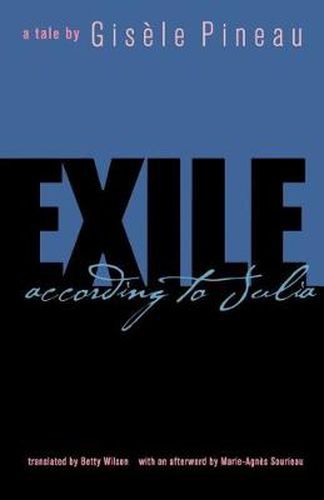Readings Newsletter
Become a Readings Member to make your shopping experience even easier.
Sign in or sign up for free!
You’re not far away from qualifying for FREE standard shipping within Australia
You’ve qualified for FREE standard shipping within Australia
The cart is loading…






This title is printed to order. This book may have been self-published. If so, we cannot guarantee the quality of the content. In the main most books will have gone through the editing process however some may not. We therefore suggest that you be aware of this before ordering this book. If in doubt check either the author or publisher’s details as we are unable to accept any returns unless they are faulty. Please contact us if you have any questions.
Gisele Pineau was born, and spent the first fourteen years of her life, in Paris. Her parents, originally from the island of Guadeloupe, were part of the massive transplantation of Antilleans to the metropole after World War II. Most had left their homeland hoping to improve their lives and their children’s prospects. Born French nationals, all theoretically enjoyed equal footing with the Parisian French. The colour of their skin, however, meant a far different reality for Pineau’s family and their fellow emigres. They lived on the outskirts of the city and on the margins of French society and culture.
L'exil selon Julia, Gisele Pineau’s compelling portrait of alienation and exile, was born of that experience. The critically acclaimed 1996 autobiographical novel, now available in its first English translation, explores the alienation of a girl and her grandmother contending with life between two identities. As a young woman of colour and Caribbean ancestry-even though Paris-born-the girl is not accepted, not French enough, for her fellow Parisians. Yet she is too cosmopolitan to fit into Guadeloupean society upon returning to the island for a visit. And since her parents have virtually silenced their Creole legacy hoping to become better assimilated, she has no base of traditional knowledge to fall back on for strength or guidance as she contends with her identity crisis. When her grandmother Julia moves in with the family, the stories, the culture, and the strong sense of cultural identity the older woman brings finally provide the girl with a sense of belonging that transforms her life.
Powerful and accessible, Exile according to Julia is above all a moving and beautiful story of childhood, survival, and heritage that will speak to readers of all ages.
$9.00 standard shipping within Australia
FREE standard shipping within Australia for orders over $100.00
Express & International shipping calculated at checkout
This title is printed to order. This book may have been self-published. If so, we cannot guarantee the quality of the content. In the main most books will have gone through the editing process however some may not. We therefore suggest that you be aware of this before ordering this book. If in doubt check either the author or publisher’s details as we are unable to accept any returns unless they are faulty. Please contact us if you have any questions.
Gisele Pineau was born, and spent the first fourteen years of her life, in Paris. Her parents, originally from the island of Guadeloupe, were part of the massive transplantation of Antilleans to the metropole after World War II. Most had left their homeland hoping to improve their lives and their children’s prospects. Born French nationals, all theoretically enjoyed equal footing with the Parisian French. The colour of their skin, however, meant a far different reality for Pineau’s family and their fellow emigres. They lived on the outskirts of the city and on the margins of French society and culture.
L'exil selon Julia, Gisele Pineau’s compelling portrait of alienation and exile, was born of that experience. The critically acclaimed 1996 autobiographical novel, now available in its first English translation, explores the alienation of a girl and her grandmother contending with life between two identities. As a young woman of colour and Caribbean ancestry-even though Paris-born-the girl is not accepted, not French enough, for her fellow Parisians. Yet she is too cosmopolitan to fit into Guadeloupean society upon returning to the island for a visit. And since her parents have virtually silenced their Creole legacy hoping to become better assimilated, she has no base of traditional knowledge to fall back on for strength or guidance as she contends with her identity crisis. When her grandmother Julia moves in with the family, the stories, the culture, and the strong sense of cultural identity the older woman brings finally provide the girl with a sense of belonging that transforms her life.
Powerful and accessible, Exile according to Julia is above all a moving and beautiful story of childhood, survival, and heritage that will speak to readers of all ages.